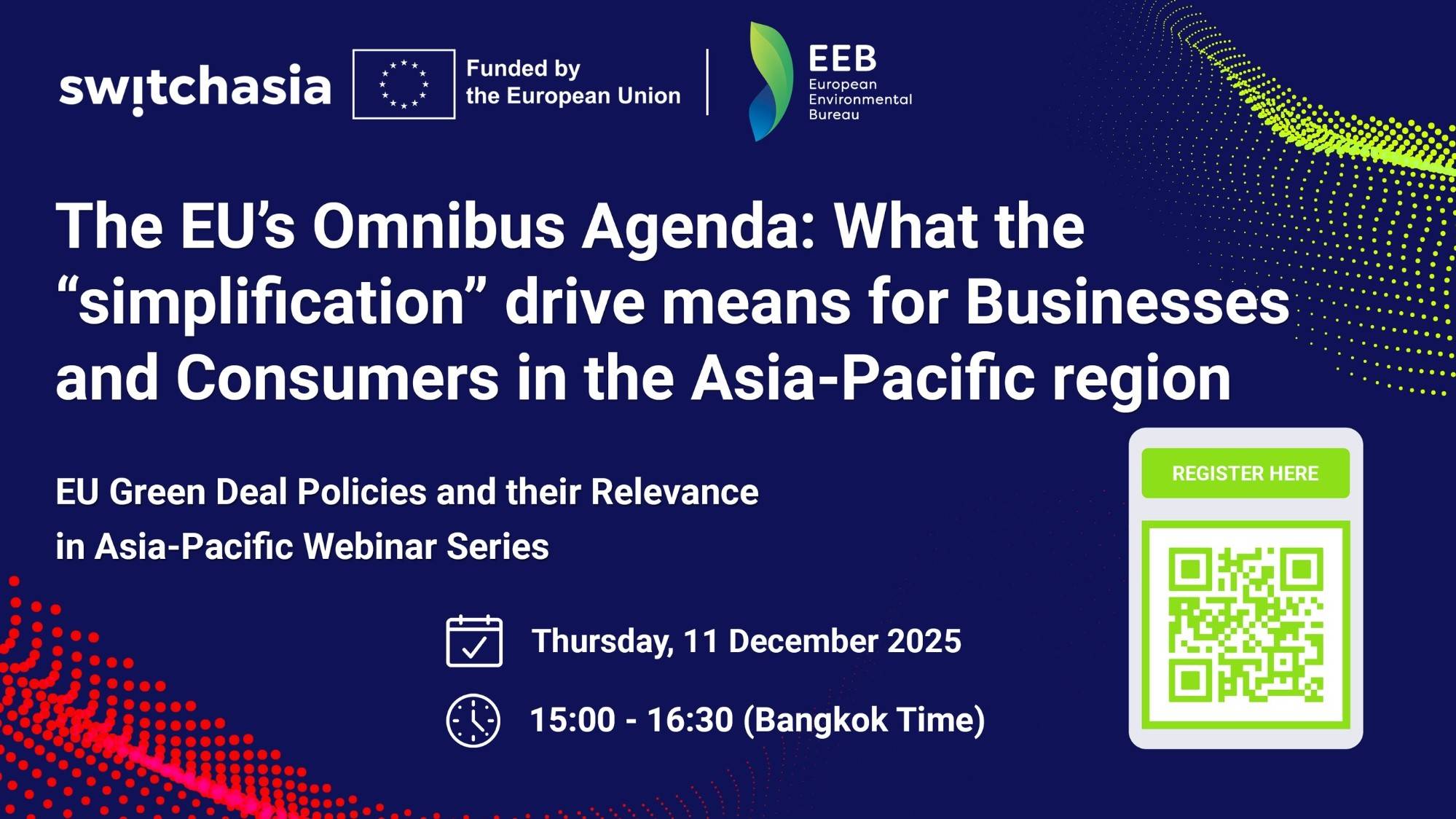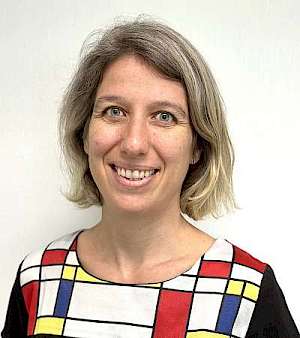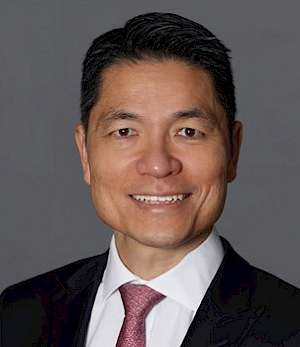
WHEN: 11 December 2025 I TIME: 15:00-16:30 (Bangkok Time) I Register HERE
Background
The European Commission operates in election cycles of five years. The Green Deal was adopted during the 2019-2024 mandate, and the agenda of the 2024-2029 Commission has shifted following the elections in June 2024. Commission president Ursula von der Leyen has been consistently clear in stating that the Green Deal priorities are still alive, but it has been complemented by a new agenda that centres competitiveness, and with that, regulatory simplification.
The EU’s simplification and implementation agenda is not new per se, but it has been reignited with renewed vigour during this period. Many stakeholders are concerned that this agenda is leading to deregulation and an erosion of the standards that was set by the Green Deal. This is a concern for citizens as well as businesses, who depend on legislative certainty in order to plan for investments and compliance.
The first “omnibus” package was proposed in February 2025, to simplify and streamline the Corporate Sustainability Reporting Directive (CSRD), which streamlines non-financial reporting requirements, the Corporate Sustainability Due Diligence Directive (CSDDD), which mandates organisational awareness of possible issues in the supply chain, the EU Taxonomy for sustainable investments, and the Carbon Border Adjustment Mechanism (CBAM). This proposal is still part of an ongoing inter-institutional negotiation process, but it will most likely not only address the procedural details but also touch the scope and substance of the laws. More than 6 following omnibus proposals have since been announced, covering everything from agricultural, to chemicals, to environmental and food policy. These are still in very early stages, so it is difficult to provide specific information about their content - but the re-opening of laws might be far-reaching.
Most Asian countries consider the EU an important trading partner and have started investing in compliance with the Green Deal. The many omnibus proposals and the lack of clarity around key pieces of legislation such as the Deforestation Regulation (EUDR) have caused considerable uncertainty among governments and businesses that have or are planning to invest in EU market requirements.
Webinar Session:
The EU SWITCH-Asia Policy Support Component and the European Environmental Bureau, are convening the webinar, The EU’s Omnibus Agenda: What the “simplification” drive could mean for Business and Consumers in the Asia-Pacific region to:
- Discuss the EU’s competitiveness and simplification agenda and what it could mean for Asian businesses and consumers.
- Understand what changes are set in stone and which are still pending
- Discuss the challenges and opportunities for businesses in navigating the uncertainty around legislative reopening
Moderator:

Elodie MARIA-SUBE, Expert on EU policy development and partnership building at the SWITCH-Asia Policy Support Component
Elodie is specialized in European Affairs related to topics of circular economy, SCP, climate change and environmental management, and has extensive experience in stakeholder consultation and engagement at the EU level, as well as with high-level officials in Ministries of Environment and Finance in Asia. For over a decade, Elodie has worked in South and South-East Asia on environment and climate change. She is currently leading the SWITCH-Asia Technical Advisory project on Sustainable/ Green Public Procurement for Transformation.
Speakers:
 Zinaida FADEEVA, Team Leader, SWITCH-Asia Policy Support Component
Zinaida FADEEVA, Team Leader, SWITCH-Asia Policy Support Component
Zinaida Fadeeva is the Team Leader of the Policy Support Component of the SWITCH-Asia Programme. Zinaida has over 25 years leading international professional experience in policy for and practice of sustainable consumption and production (SCP) and Education for Sustainable Development, amongst others working with the United Nations University Institute for the Advanced Studies of Sustainability (UNU-IAS). Her work has focused on diverse topics such as tourism, plastics, construction, small and medium enterprises, procurement and lifestyle. Zinaida has worked extensively with governments, private sector, international organisations and academia in East, South East, South and Central Asia.
 Eva BILLE, Head of Circular Economy, European Environment Bureau
Eva BILLE, Head of Circular Economy, European Environment Bureau
Eva is in charge of the EEB activities around circular economy policy. She studied economics and graduated with a Master’s Degree specialising in resources, development and growth from Tilburg University. She has previously spent 10+ years as an EU policy consultant, working with major companies and trade associations in the Brussels bubble. She has also worked for the UN in Lebanon and spent 4 years working in China.
 Leonard NG, Co-Managing Partner, Singapore Office, Sidley Austin LLP
Leonard NG, Co-Managing Partner, Singapore Office, Sidley Austin LLP
Leonard NG is co-managing partner of Sidley Austin LLP’s Singapore office, a member of the firm’s global Executive Committee and head of the firm’s UK/EU Financial Services Regulatory Group. Leonard advises a wide range of global financial institutions on complex UK/EU financial services regulatory issues as well as emerging rules on sustainable finance and ESG, including advising on the EU SFDR, CSRD, CSDDD and related product regulation, and the UK SDR, TCFD reporting rules and new climate-related disclosure requirements for UK entities. Leonard is a past member of the Board of MFA, the trade association for the global alternative asset management industry, and is a frequent speaker at industry conferences. In 2022 and again in 2023, Leonard was selected by Financial News as one of Financial News’ ‘Fifty Most Influential Lawyers’.
Agenda:
|
11 December 2025 |
|
|
15:00 |
Introduction to the Webinar
|
|
15:05 |
Presentation: EU’s simplification agenda from the perspective of civil society
|
|
15:20 |
Panel Discussion: EU’s omnibus agenda – what the simplification drive means for businesses and consumers in the Asia-Pacific region Moderated by Elodie MARIA-SUBE, Key Expert on EU policy development and partnership building, SWITCH-Asia Policy Support Component
|
|
16:00 |
Q&A |
|
16:25 |
Concluding Remarks and Next Steps
|


